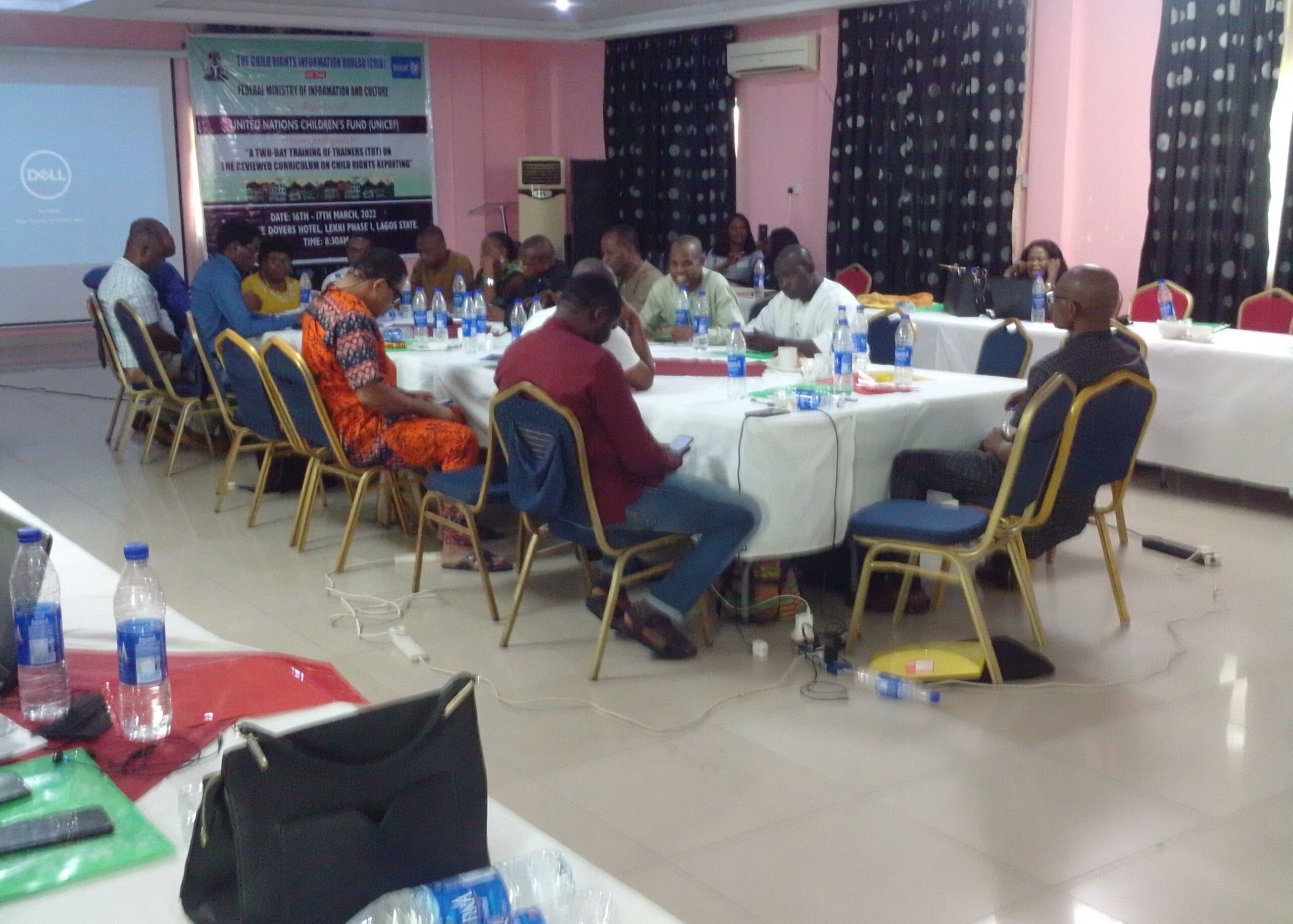By Felix Khanoba
It is now 19 years since the Child Rights Act came into force in Nigeria, with a clear commitment to holistically protect the rights of every child in Africa’s most populous country.
But in a country regularly inflicted with child abuse incidents, only about 28 out of the nation’s 36 states have domesticated the Act.
However, the ineffective implementation of the provisions of the Act and the inadequate reportage of several cases in its violation have left many as perpetual victims of the very evil the law intends to cure.
Hawking of goods by children during school hours, sexual exploitation of female students by teachers/lecturers, underage/forceful marriage, child labour, among others, have largely remain some of the major regular violations of the Act.
Just recently, the Paediatric Association of Nigeria (PAN), declared that eight out of every 10 Nigerian children suffer physical, emotional, or sexual abuse before the age of 18 years.
While many have expressed concerns over such abuses and the little impact the child rights Act has made so far, the United Nations Children’s Fund (UNICEF) is now pushing for the full entrenchment of child rights reporting in schools curriculum, particularly those of higher institutions.
The move, which many experts believe is a game changer, will not only ensure young students are fully aware of the special protection they enjoy under the law but would bring abusers to the public glare through news reporting to ensure justice.
This drive to mainstream reporting of child rights as captured in the Act into academic course content recently attracted stakeholders from academia, the media, among others, during a two-day Training of Trainers Workshop on the Reviewed Curriculum of Child Rights Reporting” .
The event, which took place in Lagos on 16 and 17 of March 2022,
was organised by UNICEF Nigeria in collaboration with the Child Right Information Bureau (CRIB) of the Federal Ministry of Information and Culture.
Participants at the event were unanimous on the need to champion and institutionalise child rights reporting in schools in order to churn out graduates from relevant disciplines that will always beam a searchlight on the issues.
Some academic staff at the event, however, revealed that their institutions have already taken the bull by the horn in the teaching of child rights reporting.
One of such institutions is Enugu State University of Science and Technology (ESUT), where child rights reporting is a year three course.
“Conservatively, we have trained more than 3,000 students over the years, some eventually chose child rights-related topics in their undergraduate projects, Masters dissertation and PhD thesis.
“Assignments in other courses are given child rights slant, for instance, magazine production, feature writing, film production, they have produced child documentaries rights-focused magazines on different child rights-related topics,” Ezinwa Anthony, who lectures in the Department of Mass Communication in the university, said.
“The course has been taken as one of the few CBT Examinations in the University with 100 multiple-choice questions.
“The course has continued to enjoy the attention and interest of many students who readily share very interesting and sometimes emotion-laden personal experience stories for case studies that make the lectures quite engaging and memorable.
“The class attendance and success rate is high compared to other courses. Case studies are based on stories generated by students. They identify the rights infringed upon in the stories, this way their knowledge of various child rights are tested,” Ezinwa added.
Also speaking at the workshop, a Professor of Mass Communication at the Ebonyi State University, Abakaliki, Ifeyinwa Nsude, said the move to mainstream child R0rights reporting into academic programmes had not been easy in many institutions because of administrative bottlenecks.
Prof. Ifeyinwa, however, said things will now take a new shape following the introduction of the unbundled programme on Child Rights reporting.
“It is already in the curriculum for the unbundled programme. In many institutions they have started planning on how to start this unbundled programme.
“In my school for instance, I went to my Vice Chancellor and gave him a report about unbundling and how child rights had been incorporated into the unbundling. Before now, I was meeting him to know if child rights reporting could be included in the curriculum, after my discussion with him, he accepted, but now that the unbundling is automatically in the curriculum, we don’t have problem with it,” she said.
Asked on what Nigeria stands to gain from Child Rights reporting, Prof. Ifeyinwa said : “There are many good things about child’s rights reporting. In the university for instance, you will see most of the lecturers abuse child rights and what baffles me is that the children don’t even talk and they are intimidated.
“If we go about this child rights reporting very well, it will create that awareness and help the students to know that they have rights that no lecturer can intimidate them.”
Many believe that with the renewed passion by UNICEF in championing child rights reporting in curriculum, the issue of maltreatment of young ones and other abuses will be drastically reduced in the country in the not too distant future.



